I wrote a 'simple' (it took me 30 minutes) program that converts decimal number to binary. I am SURE that there's a lot simpler way so can you show me? Here's the code:
#include <iostream>
#include <stdlib.h>
using namespace std;
int a1, a2, remainder;
int tab = 0;
int maxtab = 0;
int table[0];
int main()
{
system("clear");
cout << "Enter a decimal number: ";
cin >> a1;
a2 = a1; //we need our number for later on so we save it in another variable
while (a1!=0) //dividing by two until we hit 0
{
remainder = a1%2; //getting a remainder - decimal number(1 or 0)
a1 = a1/2; //dividing our number by two
maxtab++; //+1 to max elements of the table
}
maxtab--; //-1 to max elements of the table (when dividing finishes it adds 1 additional elemnt that we don't want and it's equal to 0)
a1 = a2; //we must do calculations one more time so we're gatting back our original number
table[0] = table[maxtab]; //we set the number of elements in our table to maxtab (we don't get 10's of 0's)
while (a1!=0) //same calculations 2nd time but adding every 1 or 0 (remainder) to separate element in table
{
remainder = a1%2; //getting a remainder
a1 = a1/2; //dividing by 2
table[tab] = remainder; //adding 0 or 1 to an element
tab++; //tab (element count) increases by 1 so next remainder is saved in another element
}
tab--; //same as with maxtab--
cout << "Your binary number: ";
while (tab>=0) //until we get to the 0 (1st) element of the table
{
cout << table[tab] << " "; //write the value of an element (0 or 1)
tab--; //decreasing by 1 so we show 0's and 1's FROM THE BACK (correct way)
}
cout << endl;
return 0;
}
By the way it's complicated but I tried my best.
edit - Here is the solution I ended up using:
std::string toBinary(int n)
{
std::string r;
while(n!=0) {r=(n%2==0 ?"0":"1")+r; n/=2;}
return r;
}

